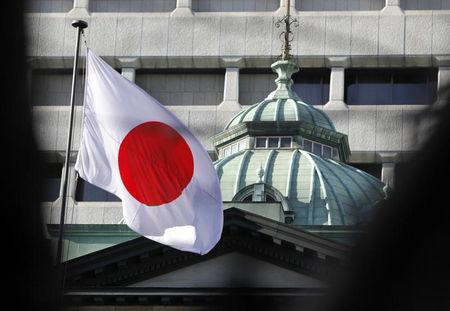The Bank of Japan (BOJ) is set to conclude a pivotal two-day policy meeting on Wednesday, with considerable speculation surrounding its decision. Analysts are divided on whether the central bank will opt to raise interest rates, particularly in light of recent fluctuations in the yen’s value. The BOJ’s decision is highly anticipated due to its potential implications for both domestic economic conditions and global financial markets.
In its previous meeting in June, the BOJ maintained its benchmark short-term rate at 0.1%. This decision came after the central bank had raised the rate for the first time in 17 years in March. The focus of Wednesday’s meeting is expected to extend beyond just the interest rate; many analysts predict that the BOJ will also signal a cessation of its quantitative easing (QE) programs. The BOJ had indicated in June that it would elaborate on its plans to taper its asset purchases during the July meeting, setting the stage for this anticipated policy shift.
Yen Volatility and Economic Indicators
The Japanese yen has experienced significant volatility in recent weeks. After a prolonged period of weakness, the yen strengthened considerably against the U.S. dollar over the past two weeks. This sharp appreciation is attributed to a combination of factors, including suspected market interventions, the unwinding of carry trades, and expectations of possible interest rate cuts by the U.S. Federal Reserve. The yen’s recent rally marks its strongest level against the dollar in over two months, adding pressure on the BOJ to carefully consider its policy options.
Arguments for a Rate Hike
Several analysts are advocating for a rate hike at this meeting. Forecasts suggest the BOJ might increase rates by either 10 or 15 basis points. The case for a rate hike is bolstered by recent inflationary pressures in Japan, which have been partly driven by higher wages. This aligns with the BOJ’s ongoing stance that inflation could sustainably reach its 2% annual target, potentially providing the central bank with the necessary room to tighten monetary policy.
For example, analysts at ANZ argue that the intensifying risks of inflation could justify a rate hike. They predict that the BOJ might raise rates by 15 basis points, adjusting the policy range to 15-25 basis points. Japanese wages have seen an increase this year following significant wage hikes negotiated by major labor unions. This wage growth is expected to support both consumption and inflation in the coming months, reinforcing the argument for a potential rate increase.
Arguments for Holding Rates
Conversely, concerns about a broader economic slowdown could lead the BOJ to maintain current rates. The central bank has consistently emphasized the importance of maintaining relatively loose monetary conditions to stimulate economic growth. Recent economic data has shown that Japan’s economy contracted more than expected in the first quarter, with weak consumer spending being a major factor. This could lead the BOJ to reconsider or delay any rate hike.
Governor Kazuo Ueda has reportedly expressed reservations about raising rates due to concerns over sluggish consumption. Analysts at ING note that while a narrow decision on a 15 basis point increase is still possible, the persistence of negative real wage growth might lead the BOJ to keep its policy rates unchanged. The central bank has highlighted that while the “virtuous cycle” of wage increases and consumption is strengthening, real wage growth has not yet turned positive, potentially influencing the BOJ’s decision to hold rates steady.
Market Implications
A decision to raise rates or end QE programs could have profound implications for Japanese financial markets. Historically, tightening monetary policy tends to have a negative impact on stock markets. Additionally, a stronger yen, which might result from a more hawkish BOJ stance, could put pressure on export-oriented stocks, which are a significant component of Japanese stock valuations.
The Nikkei 225 index has already seen a decline over the past week, partly due to a downturn in the technology sector and investor positioning in anticipation of potentially hawkish signals from the BOJ. If the BOJ adopts a more aggressive policy stance, the yen could strengthen further. Analysts at Bank of America have projected that the USD/JPY exchange rate could potentially drop to 145 yen if the BOJ signals a more hawkish policy stance.
In summary, the BOJ’s decision on Wednesday will be a critical moment for financial markets and the Japanese economy. Investors and analysts will be keenly observing the central bank’s policy choices and any accompanying commentary to gauge their impact on economic conditions, inflation, and market dynamics. The outcome of this meeting could shape the economic landscape in Japan and influence global financial trends.
